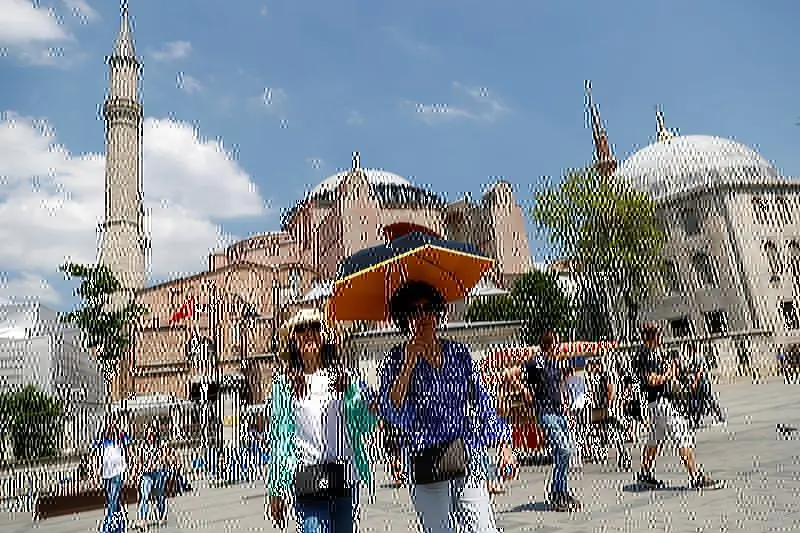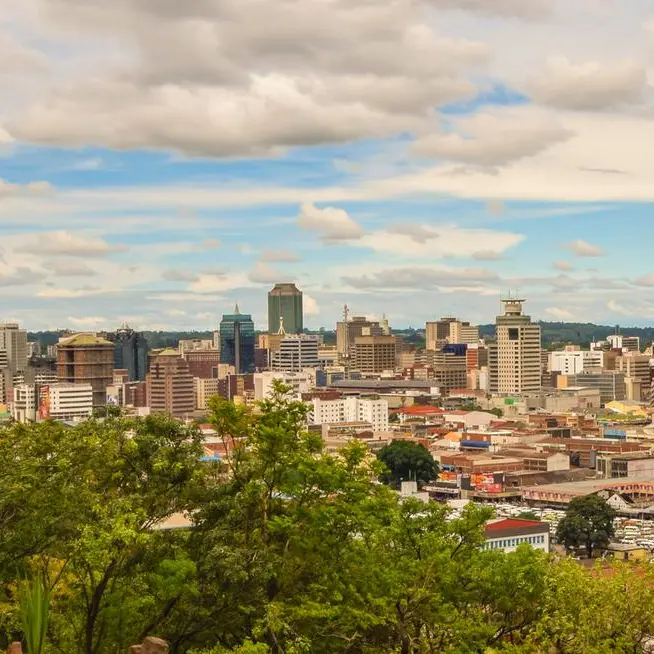PHOTO
ISTANBUL - Turkey's tourism revenues nearly tripled in the second quarter while first-half foreign visitor numbers surged close to 2019 levels, data showed on Friday, recovering from a coronavirus-driven slump and bringing in badly-needed foreign currency.
The rebound, following the lifting of tight restrictions at the height of the pandemic, has been helped by the lira's slide, which lost 44% against the dollar last year and 27% so far in 2022, making Turkey cheaper for foreign tourists.
However, the economic woes fuelling the lira tumble have in turn left domestic tourism lagging behind, data and interviews suggest, with near-80% annual inflation eating into Turks' disposable income.
Tourism revenues surged 190% from a year earlier to $8.72 billion in the second quarter, statistics institute data showed.
Media cited Tourism Minister Mehmet Ersoy as saying on Thursday that Turkey aimed for $37 billion in tourism revenues and attracting 47 million tourists this year, raising its targets from $35 billion and 45 million.
In 2021, tourism revenues doubled to almost $25 billion, recovering from the worst of the COVID-19 impact, but remained well below the $34.5 billion recorded in 2019.
Tourism revenues are vital to Turkey's economy, with central bank net currency reserves near a 20-year lows and President Tayyip Erdogan's economic plan aiming for a current account surplus.
In June, the number of foreign visitors arriving in Turkey leapt 145% from a year earlier to 5.02 million, with first-half numbers hitting 16.37 million, up 186% from a year ago, the Tourism Ministry said.
COSTS DAMPEN DOMESTIC TOURISM
Data points to a more subdued trend among domestic tourists.
Domestic tourists' trips with overnight stays rose just 6.1% to 8.8 million in the first quarter, with inflation doubling trip costs, official data showed last week. Last year the number of such trips jumped 23.2%.
In the Mediterranean resort area of Marmaris, hotel manager Fahri Tan said rising costs hurt both guests and operators, whose costs surged 150-200%.
"Domestic tourists have become unable to bear the total holiday expenditure burden due to the sharp increases in transportation and other expenditures," said Tan, manager of the Fi Light Solto Boutique Beach Hotel in Selimiye, near Marmaris.
As a result, many Turks are trying to spend less.
"We would normally stay at a hotel, but due to high prices we rented a house from Airbnb," said marketing expert Ozge Ozkan.
(Reporting by Canan Sevgili, Ceyda Caglayan, Berna Suleymanoglu and Azra Ceylan; Writing by Daren Butler; Editing by Jonathan Spicer, Ali Kucukgocmen and Tomasz Janowski)





















